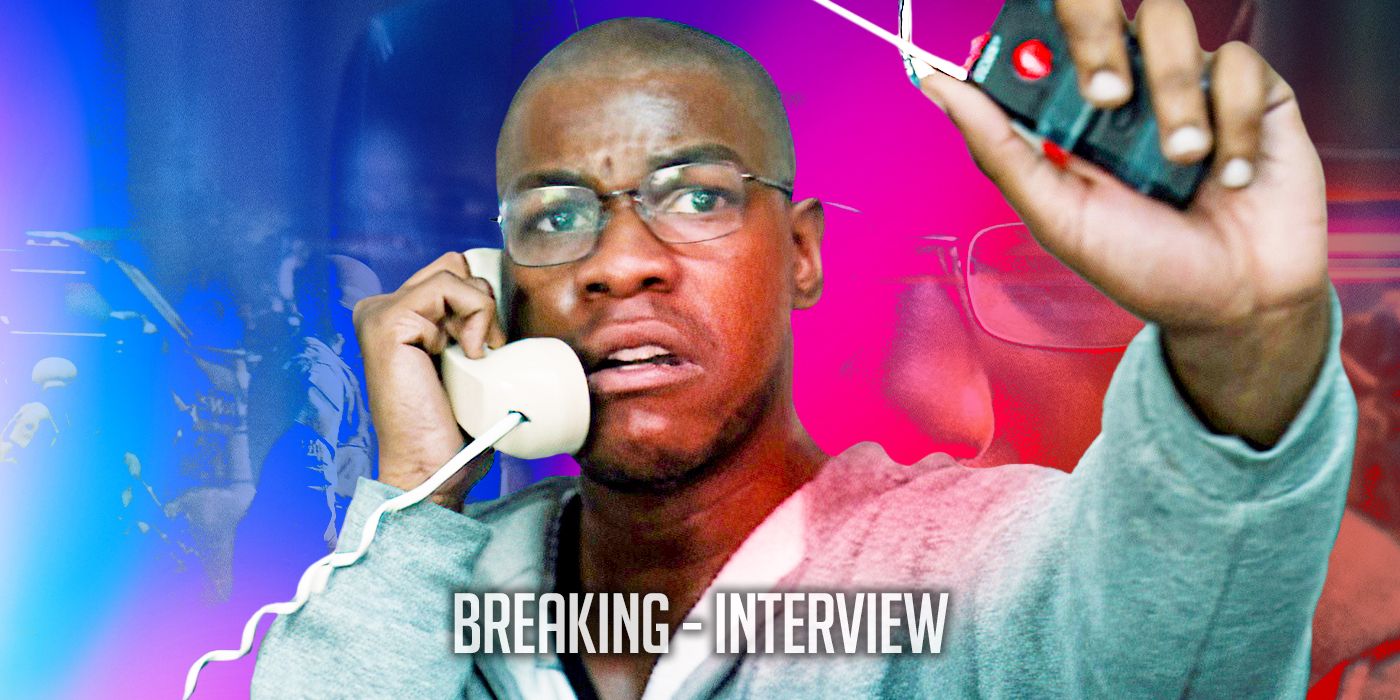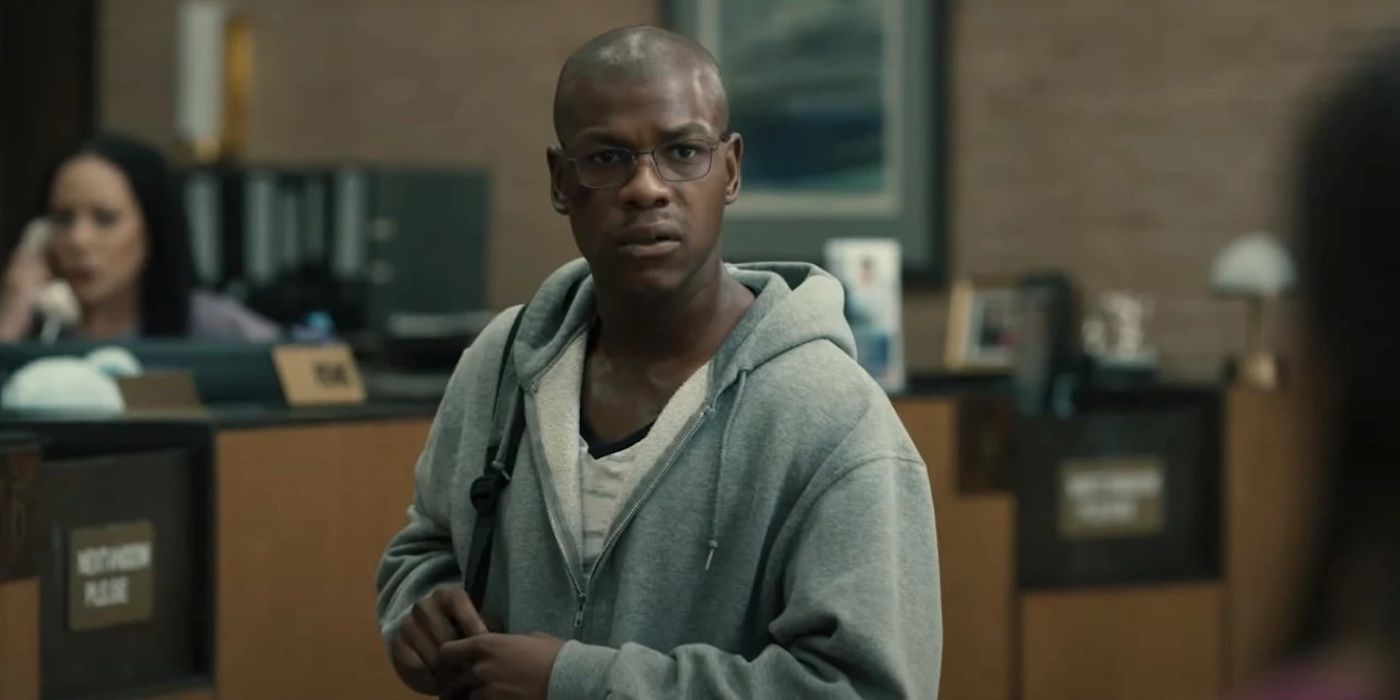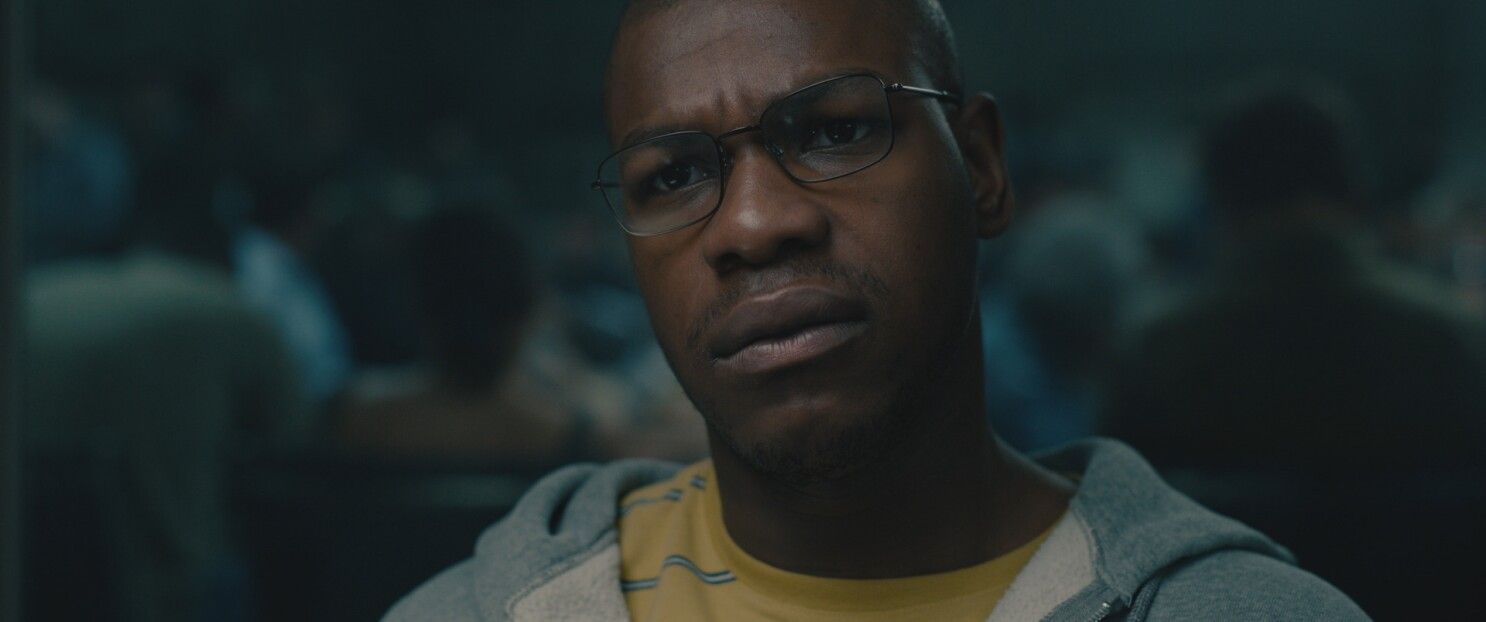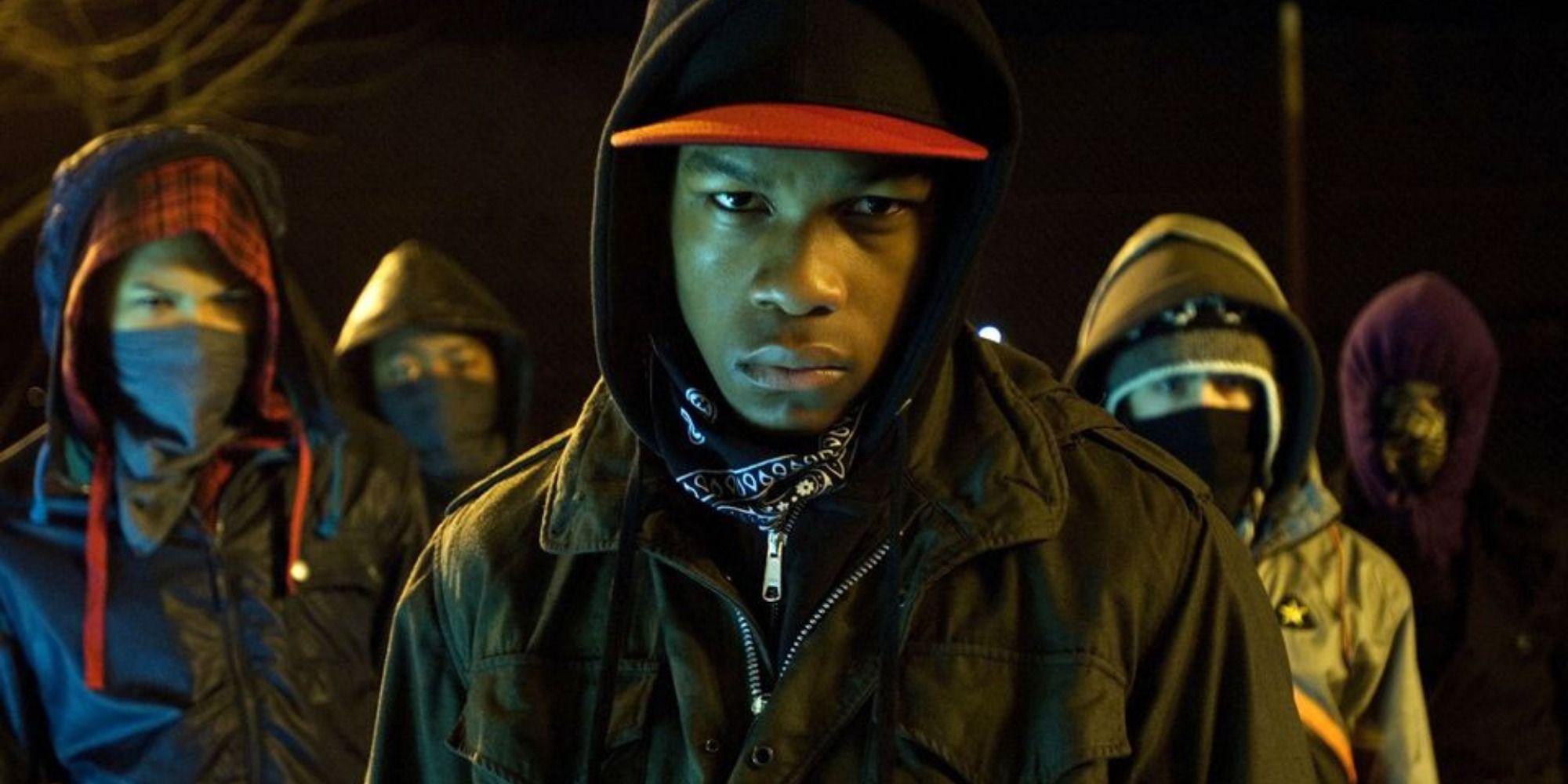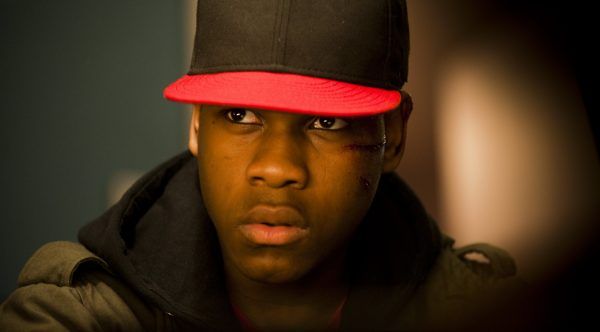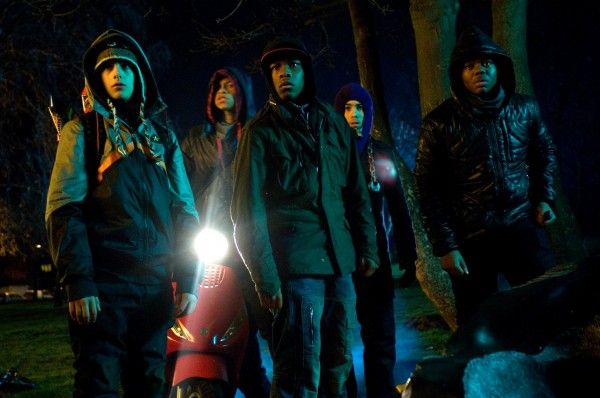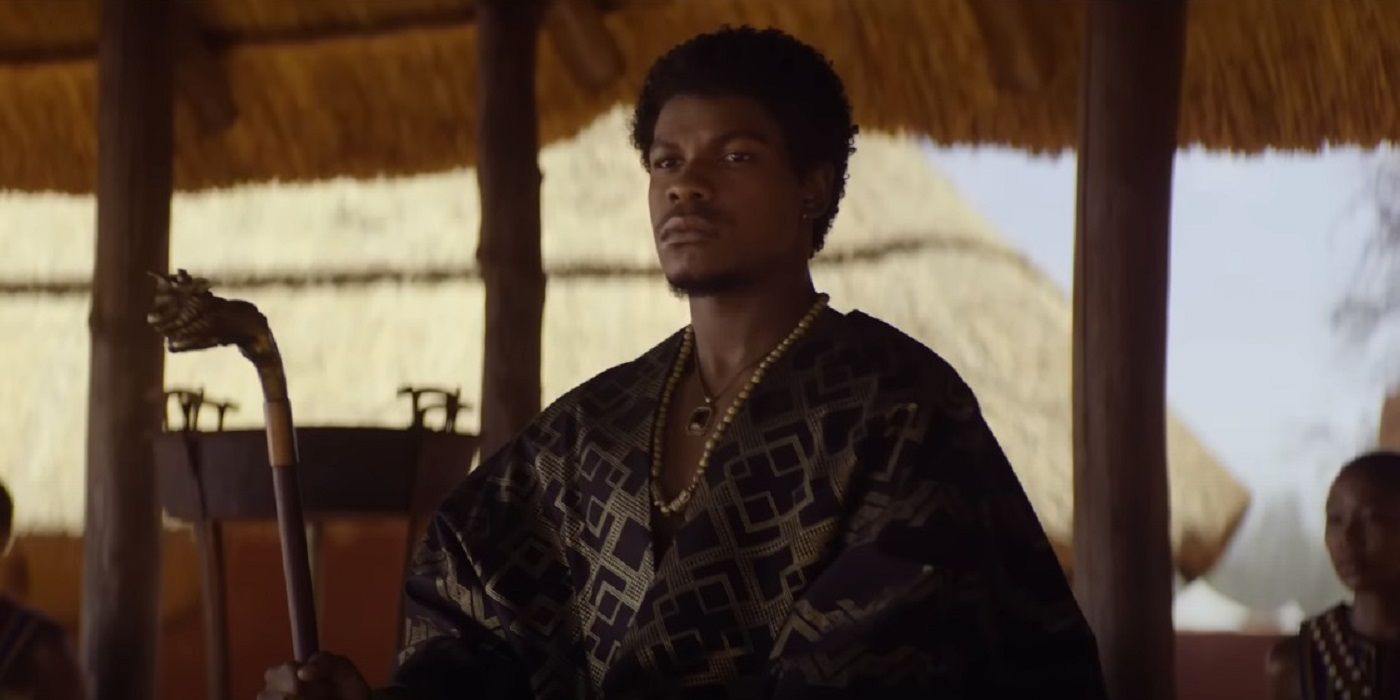From first-time director Abi Damaris Corbin and based on a true story, Breaking follows Marine veteran Brian Brown-Easley (John Boyega) on the day he becomes so desperate that he feels he has no other choice than to initiate a hold-up at a bank. Never intending to rob that bank, even though his actions triggered a tense confrontation with the police, the former Lance Corporal, husband and father just wanted the U.S. Department of Veterans Affairs to get him the monthly disability check that they were withholding.
During this 1-on-1 interview with Collider, Boyega talked about the intensity he felt when learning about this story for the first time, why this was a role that he couldn’t say no to, when he realized that he was on the right track as an actor, the work/life balance he’s found in his own life, and what it was like to have Michael K. Williams involved with the film. He also talked about how things are coming with Attack the Block 2, the inspirational experience he had making The Woman King, and whether it’s cooler to be an action figure or part of a theme park ride.
Collider: First of all, incredible performance in this.
JOHN BOYEGA: Thank you.
I was just blown away by the performance of yours, and of everybody, in this. To start with a silly, fun question before we get into heavy subject matter, there are some insane and awesome things that come along with being a part of a hugely successful franchise. On a personal level, for you, is it cooler to get to forever be memorialized as an action figure, or is it cooler to get to be part of the most incredible theme park ride ever?
BOYEGA: The theme park ride. It’s funny you say that because, a few weeks ago, I took my family and my nephews to Disneyland for the first time, and we went to Star Wars Land. We got on the ride and went through the whole experience, and just to see their faces, there’s nothing that can top that. So, yeah, that was real cool.
It’s an amazing ride. I can’t imagine what that must be like, to be a part of it.
BOYEGA: It was different. I know they’re talking about it in their little school right now, for sure.
That’s amazing. Well, this film is based on a true story, and I know that you’ve talked about how you hadn’t known this story. When you read the script for the first time, what was your experience like with reading it? Before you even started doing your work, what was the emotional experience you had with it?
BOYEGA: The same intensity that you probably got with the film was the same intense feeling that I got reading the script. With every page, the intensity, you just climax to a good crescendo where you felt like, “I don’t know whether this guy’s going to survive or not.” And I chose not to read the full article, just so that certain details weren’t revealed to me. I wanted to know what (screenwriters) Abi [Damaris Corbin] and Kwame [Kwei-Armah] were like, creatively. And once I read it and it all made sense, I was on an emotional rollercoaster. I was like, “Yeah, this is something that’s going to be easy for our audience to engage with emotionally.” It’s a subject matter and a script that balances real issues, but with entertainment value, which is something that I look for anyway, with any script that I read. So, when I saw that was accurate, I was like, “Yeah, cool. Let me do the movie because it’s too good.”
On an actor level, when you read something like this, do you have a moment of hesitation where you’re like, “I don’t know if I want to put myself through this,” or can you just not say no to something like this?
BOYEGA: I couldn’t say no. And I was tired at the time, as well. I had a movie that actually went over for a few months because we shut down due to COVID and it elongated the whole schedule by double, so imagine doing extra work on something you didn’t plan to. So, I wanted to rest, but I read the script and I was energized. I was like, “Yeah, I’m going back to work.” That’s how it happened. I couldn’t imagine saying no and having to live through watching this movie with someone else, when the opportunity was there.
I think that you’re a truly great actor, but it doesn’t matter how good of an actor you are, if you don’t believe in yourself. To take a role like this, it seems like you would really have to have a certain level of confidence in your own skill, as an actor, and your own ability to deliver the performance required. When do you feel like you really started to recognize what you were capable of, in terms of your craft, and was it ever difficult for you to push past any doubts or insecurities that you had to really pursue roles like this?
BOYEGA: I think Attack the Block is when I noticed, but it was when Attack the Block released in the States, specifically. When Attack the Block released in the UK, the UK audience was very different. They know the culture, so they’re not surprised by it. For them, it was like, rolls eyes, “We’re seeing the same old typical hoodlums in movies,” and rightly so. At the time, there was a lot going on, and it just was sensitive ground for a lot of people in the UK. But in the States, who don’t know that perspective and who don’t know that experience, they engaged with Attack the Block in a way that made me feel like, “Oh, oh yeah.” In the UK, they were like, “Oh, yeah, they were all good in it. They were cool.” In the Sates, it was more like, “Oh, I like the way the lead guy was stern and silent.” It was all specific. I was just like, “Oh, that’s what I do? Okay. I guess I do that.” That’s where I got a lot of my feedback, in terms of me feeling whether I was good or not. I’d heard that from being in local drama classes and local theater groups, but I didn’t believe them, all the way. It was like, “Come on, man, we’re all here at this level, telling each other we’re all good. We haven’t seen one industry professional to confirm it.” But when Attack the Block came out, it was like, “Okay, cool, I’ve got somethin’ going on here.”
Artists are always their own worst critic.
BOYEGA: Yeah, definitely. And you’ve gotta remember, especially at this stage, specifically for me, there’s a reason why they would approach you with it, and I just had to understand that it’s about, what have you brought to previous roles that can somewhat make them know, “Okay, cool, this is the kind of actor we need for this specific part.” And a lot of the time, directors and producers will tell you, “I watched you in this, and I watched you in this,” or “I’ve seen your work. Here’s where I wanna push you, in terms of a new direction.” That’s the kind of feedback I get.
One of the things that really struck me from watching this is that I kept thinking about how lonely this guy must have felt. He had these people in his life who cared about him, he had people in the bank while he was there, and he was communicating with people on the phone, but even with all of that, he really feels like he’s very alone on an island by himself. Did this feel like a lonely character to play? What was he like to embody, when you were really in those moments?
BOYEGA: On set, there was definitely a sense of separation from everybody else because of the energy that is churned out when the cameras are rolling. That affects the energy on set. Brian [Brown-Easley] sometimes has to go away. He had to go into the toilet area, when he lashed out in front of the bank tellers. That, in itself, is the same energy you saw on set. I would have to have a bit of isolation. I was never alone because obviously we’re on set, but there was definitely a distance to everybody, where it is you, by yourself, in that world. And also, we went off to shoot several different pieces where it would just be me, walking through Atlanta and walking across the highway. That just showed how much Brian was alone in his real life, at that moment in time.
You already have the responsibility of doing justice to this story and to what this man was fighting for. How was that to live up to? What is the bar you set for yourself, as far as being satisfied with what you delivered in this?
BOYEGA: I just had to feel it, the same way I watch anybody else in any film. I have to feel that from my opinion and from my own perspective. I have to be able to judge myself clearly and be like, “You know what? I enjoyed myself in that,” or “I actually really didn’t.” Sometimes it can be equal. That’s just how it goes.
A story like this is tragic, but it also can easily make you very, very angry that someone couldn’t just help this man who was so desperate. How hard is it to let go of a character and a story like this, especially when it’s clear that things didn’t have to turn out the way they did for him?
BOYEGA: For me, it was okay doing it. I’ve had a smooth transition and experience with letting the character go. I think it’s important to have a life outside of acting that you are excited about. That’s the main fundamental thing. You have to have people that you’re excited to go home to, that are a positive impact to your life. It’s not all from acting because sometimes acting gets gray. What makes the experience quite bitter is that you put all your golden eggs for your happiness in that thing, and then that thing has a different face. When it does, you can’t have nothing else, and no other outlet or form of support. It’s important to establish that, even when acting is being good for you and to you. It’s important to establish the other side of your life. I feel like I had that balance and it manifested during Breaking, to the point where now I can tell journalists, in all honesty, that I enjoyed filming it. That intensity that you see, that gives you that heartburn, for me, as an actor, was freedom on set because we were all collaborating. It’s the equivalent to a good feature on a song. The collaboration was just right. For us, we were just feeling the energy of what we all enjoy, which is to act, just as an art. That’s how I got through it without ever feeling like I was sad or in a dark place.
You’ve said that Attack the Block 2 is happening and that you’re starring in it and producing it, and photos have been posted of the script cover and the logo on the story outline. How close are you to production actually starting?
BOYEGA: We’re quite close. We’re gettin’ there. Obviously, we don’t wanna release no dates to anybody because we wanna take care of the creative process. We have the main spine of the story, but we’re still in the lab, just making sure the story is right. Story is everything. But it won’t be too long. I’ve given them the drums to speed up the process. Hopefully soon, we’ll have an announcement for when we’ll be around London, messin’ stuff up.
As a producer on it, how involved do you get to be, as it develops? Do you have a say in where the story goes?
BOYEGA: Yes. This process has been fantastic. The story has actually been presented by myself and Joe Cornish. We’ve collaborated heavily on making a story that makes sense for Moses and the other characters that will come onto the second [film], and the new characters that will be coming up in the sequel too. And then, also, there’s different perspectives in writing it, with Joe having his perspective and me having mine. London has changed so much, in so many different ways, over the years since the first movie. We’re just tryin’ to make sure we explore all of that, while bringing in a whole different vibe to that crazy ass first movie that we made.
From an acting standpoint, what’s it like to return to a character that you haven’t played over a decade ago? Do you go back and watch yourself and watch the movie again?
BOYEGA: Yeah, you do. You do go back and watch the movie again and remember the character. I’ve been back to my old script. I have my old notes to read. And then, also, on top of that, all the material that Joe collected, over the time to create the first movie, in terms of his pitch and everything that was in the bible for Attack the Block, we bring that out of the dusty corners, we blow the dust off, and we get back to work. It’s now about aging the character slightly and seeing where he’s at now.
I’m also extremely excited about The Woman King. What was it like to do something like that, surrounded by all of those badass women, be a part of a story like that, and to watch someone like Viola Davis embody that character? What was that experience like to have?
BOYEGA: I feel like it was inspirational. It came at the right time for me. It was a breath of fresh air. It was like free therapy. Viola would be working hard, and you’d be watching her, and you’d be inspired, or sometimes she was sharing a story about her perspective. She just goes into it, and you’re there to listen live. I was standing there on set, with the camera there, and everyone was set up to film a scene with Viola Davis. I grew up watching Viola Davis, not in this country even, but in London, in the UK. That’s a far distance from here. So, for me, it feels like a full 360 circle moment, where I’m just thankful to actually be on set and be witnessing an actress that’s so powerful, and various other people that have I’ve worked with, that have been inspirational over the years.
What does it mean to you to bring stories like Breaking and The Woman King to the screen, and to have a hand in telling them to people who you’re also going to be educating, in a lot of ways?
BOYEGA: I don’t think about it like that, but in hearing you saw that now, I am excited for that. I’m excited for people to be educated because I think a new perspective is always something that is a breath of fresh of air. Sometimes our bubble becomes the only bubble, and that makes it harder and harder to understand other people. But then, you’re in the world with them, you have to share transport, you have to fly with them, you have to be around them in the streets, you have to be around them at work. How do we navigate that? So, maybe this is a film that shows perspective in a way that is necessary. It’s an education, as much as it is an opportunity for empathy.
What did you take from the experience of working with Michael K. Williams?
BOYEGA: It was special for our movie to have Michael involved. It brought a certain quality to what we were trying to do. For him to find this story important to tell, as well, is important to mention. I feel like we’re all a part of Brian’s actual legacy and Brian wanting his story to be told. For Michael to also be a part of that, I feel that’s something quite exciting, attracting the best of the industry who see stories and think that it’s important as well. They want to add their talent to it, and Michael did just that.
Breaking is now playing in theaters.

